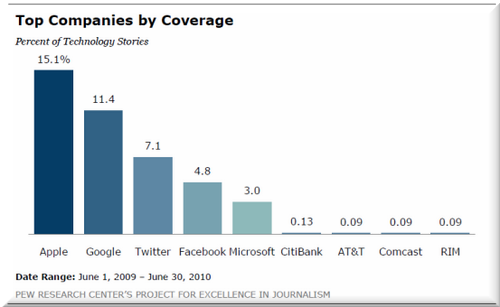Security Propaganda From Microsoft: Villains Become Heroes
Summary: A survey of security news and an analysis of Microsoft spin, namely how the company diverts attention away from its failures and portrays itself as a security leader
YESTERDAY we caught up with 3 weeks of Microsoft (in)security news, adding to our record more evidence to show what we had argued earlier this month. While the former Microsoft executives who now run Juniper Networks help protect Windows from those many vulnerabilities (some of which are hidden), there is no denying of the fact that Windows vulnerabilities are on the rise [1, 2]. To highlight bits from the news, vulnerabilities multiply fast and they are found by the dozens:
VUPEN Security Discovers Critical Vulnerabilities in Microsoft Software
VUPEN Security, the world leader in vulnerability research and analysis, today announced that the VUPEN Vulnerability Research Team (VRT) has been working with Microsoft for six months to address twenty-one vulnerabilities discovered by VUPEN in major Microsoft software.
Also in the news:
• Windows full of holes, ready for Microsoft patch
In case you were wondering, the previous record was 34 in late 2009, which makes the number 49 seem even bigger. You have to wonder if we are getting better or worse about this security thing.
• Microsoft Issues Biggest Fix Ever For Windows, Explorer, Office
• Microsoft releases security patches for Windows, IE, Office
• Microsoft will roll out a whopper load of patches
• Microsoft Preps Record Security Patch Tuesday
• Microsoft Patch Tuesday expected to set record
• Microsoft’s Biggest Patch Tuesday Ever — Better Update Your System, or Else
• Microsoft sets Patch Tuesday record, fixing 49 security holes
• Microsoft issues patches for a record 49 security holes
• Patch Tuesday brings record harvest of security fixes
As that last one puts it: “Many of these holes allow a remote takeover of your computer, in some cases after you do nothing wrong beside visit the wrong Web page. One such opening has frequently been exploited by the Stuxnet worm that’s been running around the world.”
Microsoft has only just done something about Stuxnet, which we wrote about in:
- Ralph Langner Says Windows Malware Possibly Designed to Derail Iran’s Nuclear Programme
- Windows Viruses Can be Politically Motivated Sometimes
- Who Needs Windows Back Doors When It’s So Insecure?
- Windows Insecurity Becomes a Political Issue
- Windows, Stuxnet, and Public Stoning
- Stuxnet Grows Beyond Siemens-Windows Infections
- Has BP Already Abandoned Windows?
- Reports: Apple to Charge for (Security) Updates
- Windows Viruses Can be Politically Motivated Sometimes
- New Flaw in Windows Facilitates More DDOS Attacks
- Siemens is Bad for Industry, Partly Due to Microsoft
- Microsoft Security Issues in The British Press, Vista and Vista 7 No Panacea
- Microsoft’s Negligence in Patching (Worst Amongst All Companies) to Blame for Stuxnet
- Microsoft Software: a Darwin Test for Incompetence
- Bad September for Microsoft Security, Symantec Buyout Rumours
- Microsoft Claims Credit for Failing in Security
- Many Windows Servers Being Abandoned; Minnesota Goes the Opposite Direction by Giving Microsoft Its Data
- Windows Users Still Under Attack From Stuxnet, Halo, and Zeus
Now, any sane person would say that Microsoft and almost nobody else is to blame for these vulnerabilities and should therefore be held accountable. But not when Microsoft’s spin machine occupies the news, though. Take the Bill Gates-funded Guardian [1, 2, 3, 4] for example. It serves as Microsoft’s platform right now by publishing “Microsoft Removed 6.5 Million Bots From Windows Machines In Q2″ and it’s the same propaganda the MSBBC published some days ago, having previously (just a week beforehand) given Microsoft's Charney the platform yet again. It’s rather astonishing that journalists are able to portray Microsoft as the “good guy” in this story by merely reciting reports from Microsoft. It’s an example of the failure of today’s journalism and it’s hard to tell just how much impact the former Microsoft UK executives who run the BBC or Bill Gates’ sponsorship of The Guardian have here. A few hours ago our reader told us that “Bill Gates on BBC breakfast news later.” Later this week we’ll write about that too.
“It’s rather astonishing that journalists are able to portray Microsoft as the “good guy” in this story by merely reciting reports from Microsoft.”Anyway, here is a rant about what Microsoft is trying to do here and here are a few more examples of the Microsoft spin [1, 2, 3]. So fake news is good news? It should not be the case. Either way, it’s clear that they portray Microsoft as the saviour, not the culprit, even though the problem itself was caused by Microsoft’s continued negligence [1, 2, 3]. Earlier this morning we gave an example of similar spin. Here is the same propaganda with a “Zeus” flavour [1, 2]. The latter says that “Zeus-created botnets, known as Zbots, control many millions of computers — mostly Windows XP machines — in almost 200 countries.” Okay, so why give Microsoft any credit? That’s just mastery of spin. We wrote about Zeus in posts such as [1, 2, 3, 4, 5, 6, 7].
Watch out for the spin, some of which originates in the ‘Microsoft press’ (e.g. Kurt Mackie). As usual, Microsoft will just blame the users, even though zero-day flaws mean that any Windows computer can be hijacked even if it’s fully patched. As for those who patch early, they take other types of risks and this bit of news is why people are reluctant to patch:
On Tuesday, Microsoft released updates for both Microsoft Office 2004 and 2008 to correct some security vulnerabilities in the software, but a number of people are having difficulties opening some Excel spreadsheets in Office 2004 after the update.
As mentioned by CNET member and MacFixIt reader Kurt in the comments of our article announcing the update:
“After applying the update yesterday, some Excel documents refuse to open. For a fraction of a second the open progress bar shows up, then nothing happens.”
This problem has been echoed by numerous other Office users here at CNET as well as at the Office for Mac forums, and Microsoft’s Mac team is currently investigating the issue.
Yes, that’s why many people won’t patch, either. Even those whose machine is not fully patched can sometimes blame Microsoft’s poor quality of patches. █
Remember Microsoft Stores?
Summary: Microsoft stores appear to be a failed experiment based on the observation that almost none are built anymore
OVER at Identi.ca/IRC there has been somewhat of a reminder of the fact that Microsoft no longer knows if it’s a services, software, marketing, patent litigation, or hardware company. It’s trying to be a little bit of anything as long as it has a chance of bringing some income, but by far the only significant sources of income are Windows and Office and these too are in jeopardy because revenue declines as a result of competition from GNU/Linux. Even Forbes acknowledges this right now:
Microsoft’s operating margins for the Windows operating system business have declined from an estimated 77% in 2006 to around 68% in 2009. We expect this margin decline to continue over our forecast period as netbooks and Windows sales in emerging markets account for a bigger share of Microsoft’s sales mix.
Economic theory of supply and demand says that the cost of Windows will gradually approach $0 in all cases. Microsoft knows that Windows can be copied within a framework of infinite abundance, which is why it must sell something which cannot be replicated, namely hardware. Last year Microsoft began ‘pulling an Apple’ by opening stores in an attempt to mimic Apple’s highly lucrative market. Microsoft’s problem is that, unlike Apple, it must compete against other stores which sell similar PCs, so the price will be driven down (contrariwise, Apple’s exploitative stores can fix the price). It’s hardly surprising that Microsoft stores are hardly being opened anymore. Some people forgot all about these stores (they vanished from news headlines), but this one article put two and two together, then asked if the Microsoft stores are an “Epic Fail”.
Have you been to a Microsoft store recently? If so, let us know what you saw. One of our contributors said that she was there last year and they gave her freebies. █
Sitting on Their Hands
Summary: Unverified comments about internal problems at Microsoft, namely lack of activity
AT Techrights we are very references based on the sense that we try to provide a lot of references (preferably new ones) for all claims that are being made. But sometimes information arrives via IRC or word of mouth and that’s just harder to verify/validate, so we clearly make the separation.
Under what can only be classified as “word of mouth” we can say that there’s a class action coming against Microsoft Windows bundling. There’s no reason to assume everyone wants Windows anymore and to force everyone to buy Windows along with hardware is simply unreasonable. GNU/Linux has matured a great deal and people whom I put on a GNU/Linux-based operating system for the first time have zero problems with it. It does everything they expect and it is simple to use without prior experience. Increasingly I hear from people who explore GNU/Linux and migrated entire facilities to it. Even relatives of mine, who I never imagined would explore GNU/Linux, turn out to be using it without making much fuss about it. A lot of my family uses it and my brother, whose friend started working for Microsoft not so long ago, confessed that they hardly do any work there anymore. They just come to work to sit idly and he actually brags about it (which would be problematic had the name been given). Well, this is the type of arrogance that kills companies. It’s Hubris.
“Microsoft Employees Are More Bored Than Ever” says this new report from Business Insider. This one too quotes anonymous Microsoft employees.
Microsoft’s employees are more bored than ever, says the author of Mini-Microsoft, a message board/blog focused on the internal culture of Microsoft.
According to the anonymous author of Mini-Microsoft, “my circle of friends have hit a patch of corporate ennui like never before.”
They die out of boredom and this lies in complete agreement with what I have been hearing from my brother’s friend. He says they just come in, have drinks and chat, and maybe program for just a little while. Nonchalance kills their paymaster and it shows. This type of neglect may also leave angry customers hanging until more lawsuit land on Microsoft’s desk. There are interesting times to come. █
The Death of Microsoft in the Media

Image from Pew Research Center
Summary: Microsoft rapidly slides into obscurity and Techrights explains how coverage will be affected
FOR THOSE who do not know, the way Techrights tracks Microsoft typically involves reading and studying Microsoft news over the weekend, usually on a Sunday afternoon. But Techrights has not done this since last month. Why? There is not a high enough volume of news. Microsoft grew somewhat irrelevant in news outlets. A few years ago Microsoft was by far the most talked about company in technology and now it fell behind companies like Facebook, based on this survey (watching the graph is a must). As Microsoft boosters put it:
When it comes to mainstream media outlets like newspapers, TV and radio news, it seems that no one cares much about Microsoft anymore, a new report from Pew Research Center has found. Everyone’s eye is on Apple instead. If they turn away from Cupertino, it’s mostly to write about Google, Twitter and Facebook.
Yes, even Facebook receives more coverage according to this survey. About a week ago Techrights stated that it would de-emphasise Microsoft coverage not because Microsoft is any less harmful or increasingly benign; it’s just because to software freedom, greater hurdles are beginning to develop and we need to recognise these hurdles. Fog Computing is a very scary phenomenon and software patents are no longer being pushed just by Microsoft; Apple is in certain aspects a lot worse than Microsoft even if historically it is not being recognised as such. Facebook is quite a disgusting company for all sorts of reasons, not just its software patents and general policy (Professor Eben Moglen has begun warning a lot of people about Facebook). In IRC we’ve been discussing the early days of the company and how the history is gradually being deleted; Facebook — like Microsoft — gained momentum through illegal activities, but a lot of people no longer know this or recognise this. More recently came all the PR nonsense from Mark, who had called his users “dumb fucks” in the early days when he is said to have illegally published people’s profiles on his site, pretending that they had subscribed to share this information. It should hardly be surprising that Facebook sympathises with Microsoft and sometimes gets compared to it. Facebook, which is now partly owned by Microsoft, has increasingly become an extension of Microsoft. To highlight some recent news, we have “Microsoft bolsters Facebook Docs sharing service” and “Microsoft initiates a campaign on Facebook with PC vs. Mac application” (with more examples in the wiki).
Microsoft Nick argues that “Microsoft conspicuously absent from new social media map” and if one considers the social media networks which Microsoft turns into subservient ones, then it’s a different picture altogether.
As if we needed further proof Microsoft isn’t a notable player in the emergent world of social media …
The third and newest version of The Conversation Prism, a map of today’s most influential online social tools, includes just one Microsoft product: Newsvine, which Microsoft subsidiary msnbc.com acquired in 2007. Like The Seattle Times’ Brier Dudley, I couldn’t spot any other Microsoft products in the Prism.
Well, msnbc.com is an interesting case and later on we are going to show how this network — along with other networks — was being ‘bought’ by Microsoft in order to lie (or to “spin”, putting it more mildly).
For those who worry about Microsoft, there is reason to worry no more. It’s like worrying about SCO and as we’ll show later in the week, Microsoft as a phenomenon is a greater threat than Microsoft itself. The company called Microsoft received many downgrades recently (most of them we’ve covered) and now there’s this smackdown from Barclays Capital, just shortly before the results come.
Barclays Capital cut its price target on shares of Microsoft Corp. (MSFT) by 6.7%.
“Citigroup Pessimistic on Microsoft” says this other new article’s headline and there is clearly turbulence with closures and layoffs (we covered nearly all of them last week). Microsoft is still shrinking, it only pretends to be growing sometimes (attributed to the art of PR).
“Microsoft is still shrinking, it only pretends to be growing sometimes (attributed to the art of PR).”As Microsoft is yesterday’s company (see the bar charts about media coverage), nobody can trust it anymore. Just watch what happened to “KIN” partners. Microsoft is a risky partner to have now. Well, even Verizon’s CEO rejects it in an insulting way [1, 2] and Newsweek predicts that Microsoft will oust its CEO (Ballmer) later this year. It would be symbolic, it would not actually save the company. When asked whether Vista Phone 7 [sic] failing would have Ballmer lose his job Ballmer jokingly responded as seen in this video. Groklaw framed this as “Ballmer Asked if His Job is Secure If Windows Phone 7 Bombs (video)” and Pamela Jones wrote: “Answer is, “I don’t know about that.” But a little bit as a joke. He’s “excited” about the launch and believes it’s a “market changer”.”
Well, half of departing Microsoft employees do not like Ballmer [1, 2] and huge Microsoft boosters like Harry McCracken lose faith in the company in general.
The next few months will be interesting, but Techrights will not cover Microsoft matters as much as it used to. There just isn’t much to cover, so it’s not necessary. █
Microsoft Squashed Non-profits, Now Comes Another Wave of Public Relations
Summary: Months after Microsoft employees actively participated in shutting down political dissent there is another attempt to rewrite history
THE Russian spin [1, 2] we saw a couple of months back did not cover the misbehaviour of Microsoft in countries like Kyrgyzstan [1, 2], where Microsoft officials are said to have helped the authorities shut down opposition. The New York Times appears to have decided to carry some more Microsoft PR where, rather than provide information about Microsoft’s role in political suppression, there is just listing of a PR move:
Microsoft Moves to Help Nonprofits Avoid Piracy-Linked Crackdowns
[...]
But it is now extending the program to other countries: eight former Soviet republics — Armenia, Azerbaijan, Belarus, Kazakhstan, Kyrgyzstan, Tajikistan, Turkmenistan and Uzbekistan — as well as China, Malaysia and Vietnam. Microsoft executives said they would consider adding more.
Nonsense. Where was the New York Times when less widely-read publications wrote about what Microsoft did in Kyrgyzstan for example? It’s clearly an attempt to bury shameful news, replacing it with PR. This type of PR spin needs to be highlighted because it was also promoted by the mobbyists and the Microsoft boosters whose goal is to portray Microsoft as a wonderful company. “Microsoft’s Legal Nihilism” is another new article from The Moscow Times which pretends that Microsoft is just a victim. Hogwash.
Few things can ignite Russian society as much as a noisy case of criminal prosecution for computer piracy. When the case involves huge, powerful Microsoft versus human rights activists, the inevitable result is a barrage of news stories that produce more heat than light. It also creates a widespread sense that the software leviathan has once again done something reprehensible, albeit legal.
Microsoft has not been passive in these types of crackdowns. According to Forbes for example, “Microsoft’s Kyrgyzstan agent assisted the Kyrgyz authorities in cracking down on dissenting media five days before last week’s uprising.”
Spot the PR which follows a blunder being exposed. The PR is supposed to replace the original news. █
Now you see him…
Now you don’t.























 Content is available under CC-BY-SA
Content is available under CC-BY-SA